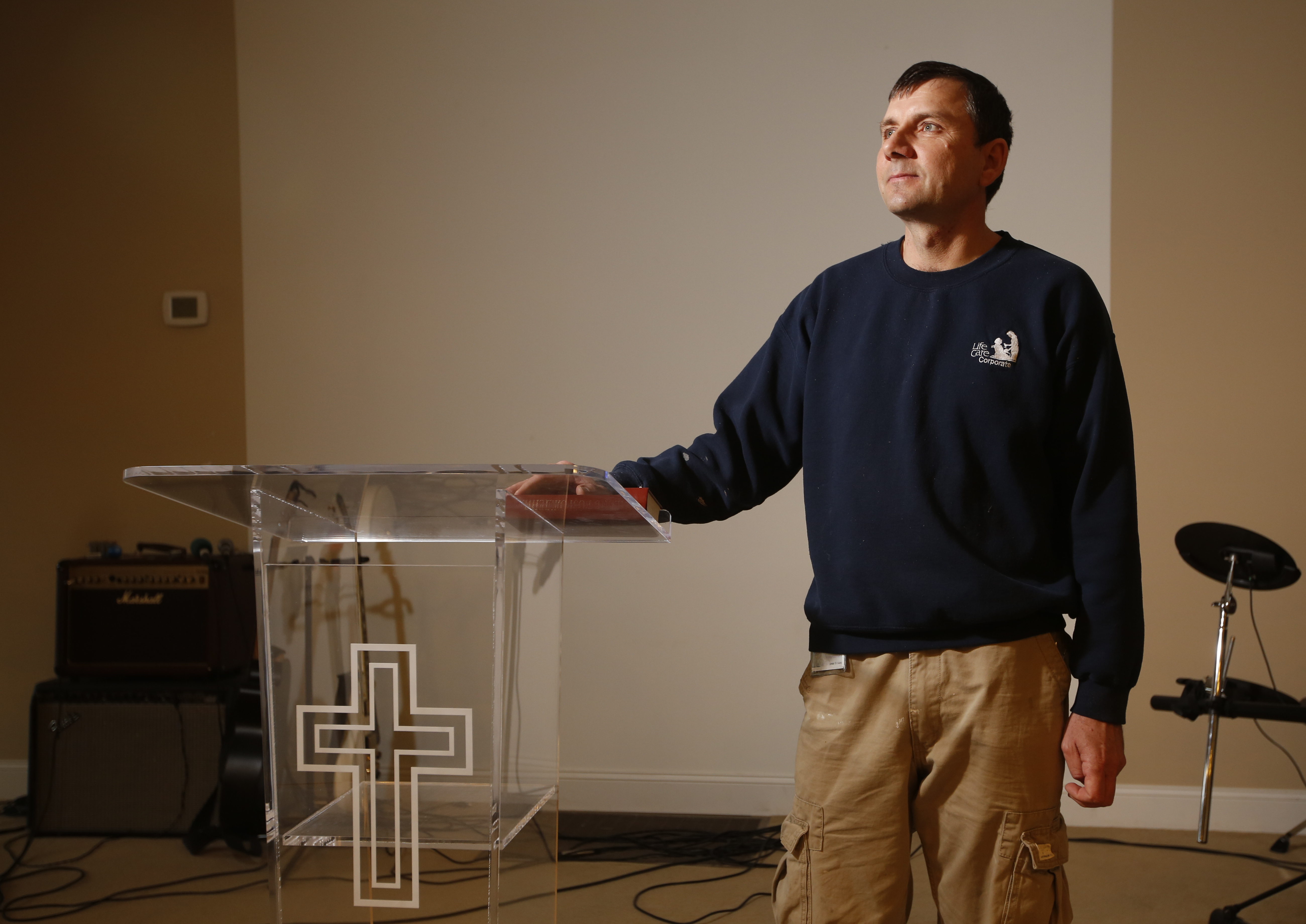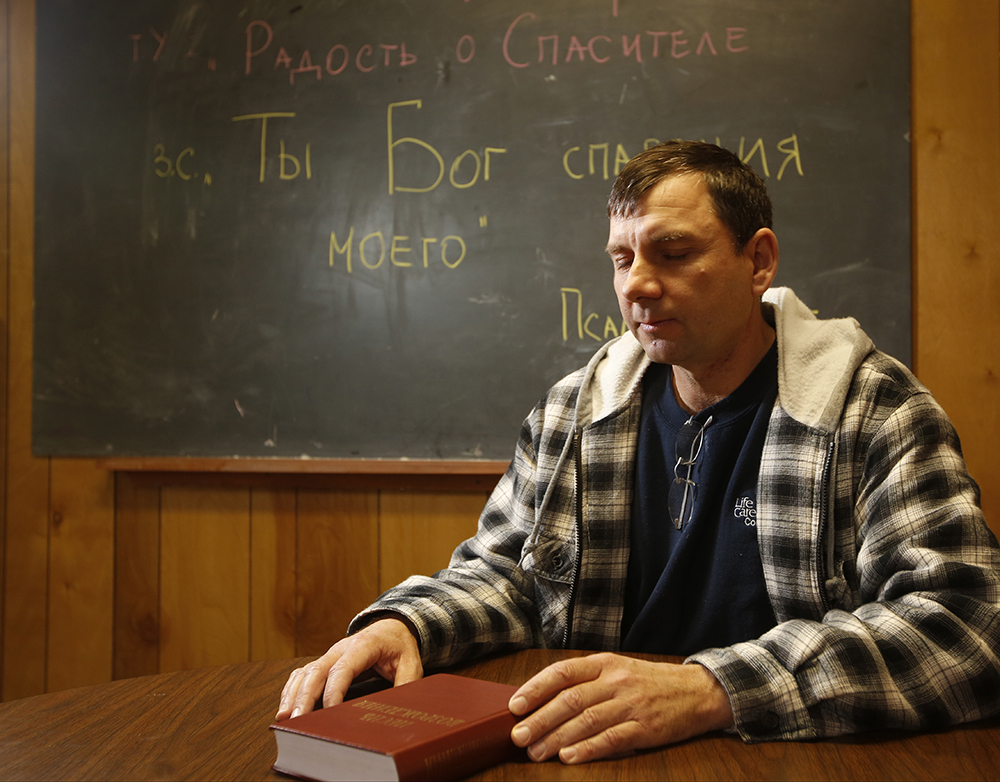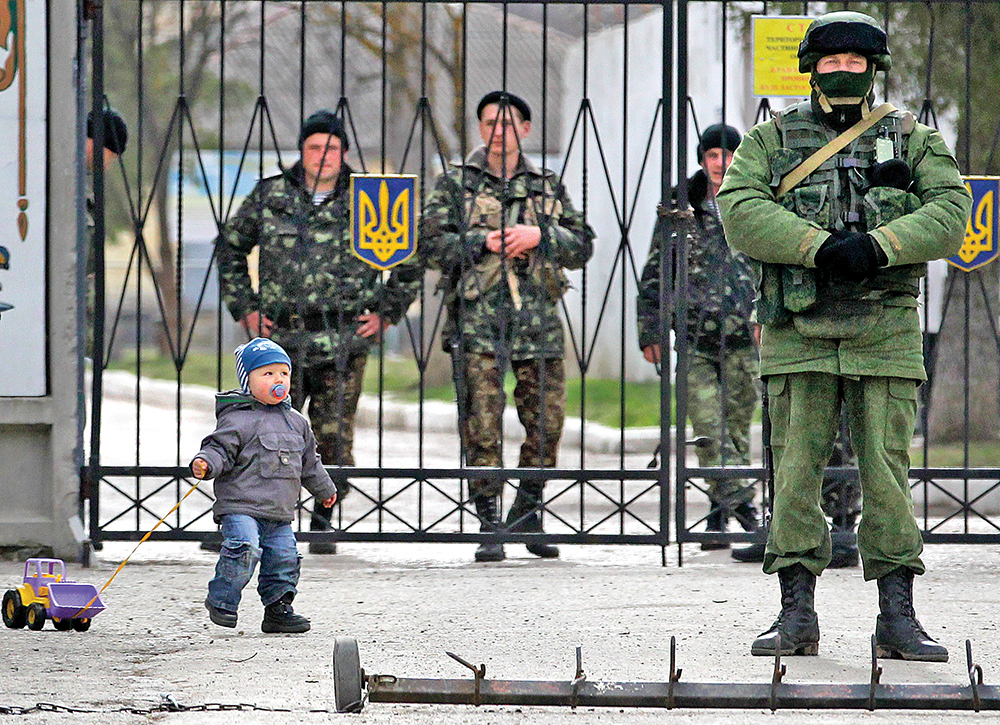READ MOREVladimir Putin talks tough but cools tensions over Ukraine
In Ukraine, there have been bloody rallies in Independence Square.
Russian soldiers have fired warning shots into the skies.
Tanks and helicopters have amassed under Russian President Vladimir Putin's command and the entire future of the former Soviet Union territory appears in question.
And more than 5,000 miles away from the Slavic tensions, Andriy Yakovenko tries to keep the peace.
He pastors Cleveland, Tenn.'s nondenominational Living Stones Community Church, a mixed congregation of Russians, Ukrainians and other Eastern European immigrants. So Russia's invasion into Ukrainian territory in recent days has left the congregation politically divided.
On Facebook, Russian sympathizers have praised Putin's actions, while Ukrainians talk about their right to remain an independent state without outside influence.
"We all have a point of view," Yakovenko said through a translator. "But we should not allow fighting and strife. Because there will be a time, God willing, when stability will return. But the words said may not be forgotten."
Yakovenko, who was born in Kyrgystan and lived in Ukraine for 24 years, isn't watching the news unfold on CNN or reading wire accounts. Like many from Ukraine living in the United States, he's hearing the news directly from those back home in the midst of it all. When dozens were killed in Kiev, when Russian forces assumed control of Crimea, he got the news on the phone and on Skype.
And like other Ukrainians now living in America, watching the turmoil play out from thousands of miles away has been torturous.
While he believes the Russians should stay out of Ukraine, Yakovenko said the church here is working to stay united. And what unites them is simple.
"Our goal is not to politicize this or that," he said, "but to continue in the example of Christ."
"If we don't pray for the leaders, who will?"
Yakovenko said many Russians and Ukrainians have immigrated to the Cleveland and Chattanooga areas in recent years. Some came directly to the area from Eastern Europe and others have moved here from the West Coast, attracted to the region's affordability and conservative nature.
His church financially supports programs back in Ukraine such as rehabilitation services. With so much turmoil now, he said, many Ukrainians struggle just to provide food and shelter.
He lived in Ukraine when it was under the Soviet Union's control and has lived in the United States for a decade. Yakovenko says the Ukrainian government has long been defined by pride and greed. Many commoners have wanted to westernize, he said, but the presidents have been motivated by their own personal gain, not that of the nation.
For now, he prays for peace.
"There's no better time than peace time," he said. "When there's war, there's all types of chaos -- famine, disease and death."
Ukrainians have been divided between East and West inclinations, having swung in different directions several times, said Curtis Bell, an assistant professor of political science at the University of Tennessee, Knoxville.
In the north, in the capital city of Kiev, people are more Western-focused and want to strengthen ties with Europe. Thus many there supported the recent ouster of Ukraine President Viktor Yanukovych. In the South, in Crimea, the peninsula area now in contest, Ukrainians sympathize with Russia and Putin's view that Yanukovych's expulsion was illegal.
"I wouldn't say that Ukraine hasn't made up its mind, but it remains very divided," Bell said.
How divided? Just look at the presidential election map. In the 2010 election, 23 of the country's 28 major voting districts were won by well over 60 percent of the vote. In some voting districts, the president carried as much as 90 percent. In others, his opponent carried as much.
That's very different from the United States, where moderateness prevails in a number of states.
"It's almost as if Ukraine was divided into 10 Utahs and 10 Hawaiis and very little in between," Bell said.
But political disagreement hasn't historically been as bloody as recent days in Ukraine.
Hundreds have been injured and dozens have died in the protests in Kiev, where rallies eventually led to the president's exile on Feb. 22.
"I think people in Kiev are very saddened with the situation," said Marina Peshterianu. "Nobody expected that it would come to violence. It started as a peaceful protest. It's just against everything we believe."
Peshterianu is the coordinator of Bridge Refugee Services, a local organization that helps to resettle refugees in the United States. She is from Kiev and lived there for 35 years. So the pictures she sees in the news are from places she once lived and worked. It's surreal.
In her work, she sees the destruction of civil war and civil unrest. And to see it happening to her homeland is heartbreaking. Crimea, near the coast of the Black Sea and now said to be home to Russian military forces, is an area she used to vacation.
"It's like Florida. It's where you go in the summer," she said. "For me to imagine military in Crimea is just impossible. It's so sad it came to this."
Contact staff writer Kevin Hardy at khardy@timesfree press.com or 423-757-6249.



